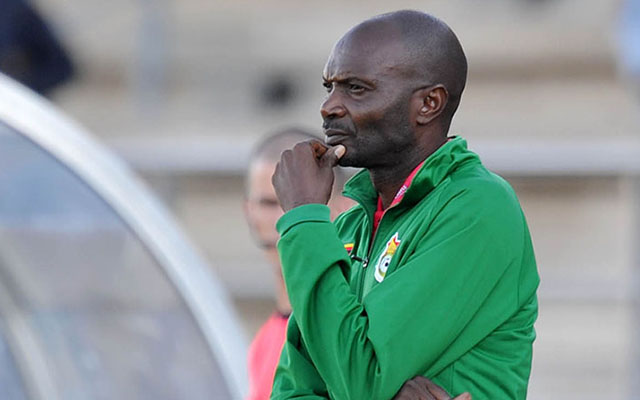Xenophobia and the man in the mirror

Nick Mangwana View from Diaspora
In recent times we have had xenophobia being traded like an en vogue commodity throughout the world. Some say Brexit was xenophobia dressed in nationalistic robes. Others say Donald Trump victory was xenophobia draped in billion dollars, placed on a vehicle emblazoned with the term patriotism and driven to the White House and given power. Whatever is actually happening to this world, God knows. But what we can proffer is this; those that prefer inward looking societies seem to be gaining ground. As Zimbabweans we stand and judge those that prefer being provincial to being global. We have our own compatriots in serious trepidation and fear today in South Africa.
This is because some communities in South Africa are in flames again. There is an expression of revulsion towards the foreigner who is accused of crime, taking away jobs, crowding out the locals in business and all sorts of other social misdeeds. Some have even gone as far as accusing the white robbed religious sects from Zimbabwe of defecating in the open causing diseases or simply being a social menace of the nuisance kind.
Why can’t we all live harmoniously with those from outside our communities without finding excuses to validate our bigoted prejudices? There is a moral chorus attacking the xenophobes in South Africa. Surely they deserve it. But does that say we don’t have the same kind in Zimbabwe? Should our law and order as well as the criminal justice system not take a stern view against this bigotry would it not manifest in Zimbabwean communities? Those who say that’s a load of rubbish argue that Zimbabwe has done very well in that regard. Zimbabwe had a mayor by the name Phiri. It has an MP by the same name and it has a High Court Judge by the same name. There is nothing that makes one stand out as a person of some sort of a foreign background than having a surname such as Phiri or Banda. Having negative feelings about such people can easily be a hint of a xenophobe.
Xenophobia is defined by sociologists as “an attitudinal orientation of hostility against a foreign or non-native in a population”. Unlike racism which is mainly about colour, in xenophobia, the cultural and custom element features quite a lot more.
In racism, those who have say a darker shade and other physical attributes to others are assigned an inferior station than their fairer contemporaries.
Xenophobia is about the fear of all things alien to one. An example is the notion that Shona people are dirty because they eat mice (Mbeva or amagundwane). That could easily be considered as xenophobic actually.
In most cases where these typical xenophobic issues come to the fore economics play a part. And when economics plays this mediating role, xenophobia is given some kind of legitimacy.
But before going into all that let us ask whether certain situation constitute xenophobia. If you hold a negative view of those that speak the Karanga dialect and consider it some kind of backwardness or deficiency, are you at risk of being a xenophobe? Should those people who are different, speak different or have different customary practices be discriminated against or vilified because they come from a group outside our own?
Some Karangas believe the Zezurus are “hodhi pano”. This is to say that the Karangas believe that when the Zezurus marry their daughter away, they will not leave the new family alone. They keep knocking on the door looking for help or succour. Then there is a counter-attack by Zezurus that say that the Karangas are heavy on the dowry for their damsels. This is countered by the Karangas who say that they return most of it on the wedding day. They claim it is money almost held in trust for their daughter which is why it’s a standard to ask whether your daughter is going to have a wedding or not before setting the bride price. Its quantum is determined by the answer one gives on whether they are going to have a white wedding or not. This is all quite innocuous stuff, and if the whole debate is either just cultural banter or some discussion of nothing, but mere social anthropological value then surely there is nothing wrong with it.
But when it stops someone with a non-native dialect, surname or accent from getting a job in a certain region, then that is xenophobia. Before casting those accusing eyes down South cast them internally and look around you.
In xenophobia there is an attitude which his oriented against non-natives in a given population. Is there an element of it in Zimbabwe? Some of the rhetoric might confirm its presence actually. If it’s an issue for a person hailing from Masvingo to be an MP say for a Mhondoro-Ngezi constituency then that is actually xenophobia.
Xenophobic prejudices are accentuated by social pressures in some places, as people fight for the meagre resources available. But that is not the case all the time. Some remote places in Zimbabwe struggling to attract teachers are still not happy when they receive a deployment of someone from a different culture or region.
An important element in xenophobia is a fear “of those perceived as outsiders”. Sometimes it’s not fear, but just some prejudice against those perceived to be outsiders based on some misplaced ethnocentrism.
When this sense of ethnic identity feels threatened by the outsider it can easily turn into xenophobia. An example is, “the teacher deployed in our area to teach elementary school does not even understand our customs and communities. What are they teaching our children?”
The next thing might even be activism against that teacher. For this activism to gain ground, it must be tinged with some inflammatory and discriminatory rhetoric. If unchecked, then the demonstrations will be followed by violence and the like. If law and order is not asserted quickly and firmly then the South African scenario plays out.
There is so much we can say about South Africa and its xenophobia, and rightly so. But what is our own attitude towards fellow Zimbabweans from a different region or those with foreign pedigree? Are we still using terms like “Makarushu” for Mozambicans and “Mabwidi” for those of Zambian and Malawian extraction? If yes, there is a chance that we are closet xenophobes.
We had a case in Ntabazinduna of one chief who closed down the GMB depot because the people that worked there were from other regions. That is a tricky one to declare as xenophobia, but it teeters close to the edge.
Recently, we had the case in Hwange where the Zimbabwe Power Company (ZPC) is being accused of bringing its general labour all the way from Harare to work on projects there. As in the other case, is there a flavour of xenophobia in there? Maybe that’s a stretch, but this is what we know; there are always seemingly legitimate economic reasons that give justification to prejudice.
Sometimes resources are just an excuse to mask ethnic bigotry. How do you explain the following? An article comes out in a newspaper in England about an unnamed Zimbabwean that has committed some benefits fraud in the UK. In the online version of that story there is a Comment section. In that section there is now a very long thread about whether that person was Ndebele or Shona.
It started with one discussant saying that the unnamed person can only be Ndebele. Then the highly inflammatory comment is countered by a bigoted diatribe against Shona people and things just slide southwards from there.
How can such things be explained by the limitation of resources? Is it not correct that as we sit by the fireside in our huts in the evening roasting nuts and dry corn, making conversations about that Mudhomeni (agriculture extension officer) from Matabeleland or that Shona teacher in our primary school in Filabusi when our children are listening?
And they carry these prejudices with them far and beyond our borders. Are we not some kind of xenophobes? Is it not correct that the major difference between our xenophobia and that displayed in South Africa is that some among us have not been given the opportunity to let loose? When we talk of these ignorance based social hierarchies in our households are we not perpetuating the same stereotypes that outrage us when we become the victims of same in foreign lands? Have we ever stopped to think why we react with revulsion when our son or daughter marries cross-culturally? What are we afraid of?
We react with repugnance at cases of either racism or xenophobia in South Africa, and yet we are also strongly opposed to this idea of Nigerian men ever snatching away our damsels. Is there any difference in the prejudices that inform our positions? One person has always argued that we all have a violent streak in us. We just need an enabling environment for the aggression to manifest. In the same vain, what is happening in South Africa cannot be condoned by any sane person. Those xenophobes there deserve all the pillorying they are getting. But we also need to exorcise ourselves of the same silent sentiment we hold against fellow Zimbabweans who speak different dialects, eat different diets or have customary practices we can’t get our heads around.









Comments